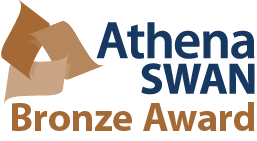You are here
- Home
- Dr Terry Bilverstone
Dr Terry Bilverstone
Professional biography
Biography
Terry Bilverstone is a Lecturer in Biomedical Sciences (Clinical Microbiology) at the School of Life, Health and Chemical Sciences. He was awarded his PhD on the virulence of Clostridioides difficile, in 2019 from the University of Nottingham, UK. His research focuses on the application of synthetic biology techniques, to genetically engineer anaerobic bacteria. Terry spent nine years at The Synthetic Biology Research Centre, University of Nottingham working on clostridial pathogens, before joining The Open University in October 2023.
Editorial
Terry is a Junior Editor for Letters in Applied Microbiology - a flagship journal of Applied Microbiology International.
The Anaerobes in Medicine, AiM Lab
Terry is the principal investigator of the Anaerobes in Medicine, AiM Lab which is equipped with a class-leading A95 Anaerobic Workstation (Don Whitley Scientific). This equipment facilitates the manipulation of microorganisms under strictly controlled anaerobic conditions.
At the AiM Lab, we develop alternative antimicrobial agents for combatting Clostridioides difficile infection. We research the function and genetic regulation of clostridial toxins, in order to direct the development of anti-virulence strategies thereto. We also conduct research into the genetic engineering of bacteriophages (phages), to enhance their potential as therapeutic agents for treating Clostridioides difficile infection.
In 2025, we began research endeavours, seeking to genetically engineer clostridia as therapeutics for the treatment of advanced cancers.
.png)
Research interests
The AiM Lab have several ongoing research themes:
1) Understanding C. difficile toxin biology.
2) Developing inhibitors of C. difficile toxin activity.
3) Developing genetically enhanced bacteriophage therapies to treat C. difficile infection.
4) Developing genetically engineered clostridial chasses as therapeutics for advanced cancers.
Research Studentship Opportunities
I am a registered prospective supervisor for the BBSRC/NERC ILESLA Doctoral Landscape Award.
My work aligns with the core ILESLA research themes:
1 - Animal and Human Health - Clostridial pathogens of humans and animals (C. difficile, C. perfringens) and novel therapeutics theretoward.
2 - Rules of Life - Microbiology of anaerobic pathogens and their bacteriophages.
3 - Transformative technologies - Synthetic biology and Engineering biology.
Please contact me to discuss potential projects.
To apply for the ILESLA scheme, follow this link: Current PhD opportunities | Life, Health and Chemical Sciences. The deadline for applications is Wednesday 29th January 2025.
External Research Funding Awarded
2023 - CoI- British Council - Going Global Partnerships - UK-Egypt: £50,000. Led by Dr Nick Chatterton.
2024 - PI - Microbiology Society - Harry Smith Summer Vacation Studetship.
2024 - PI - Applied Microbiology International - Sustainable Microbiology Novel Research Grant
Teaching interests
Clinical microbiology
Molecular microbiology
Infection biology
Antimicrobial resistance
Publications
Journal articles
Clostridioides difficile Binary Toxin Binding Component Increases Virulence in a Hamster Model (2023-01-31)
Simpson, Morgan; Bilverstone, Terry; Leslie, Jhansi; Donlan, Alexandra; Uddin, Md Jashim; Petri, William A; Marin, Natasha; Kuehne, Sarah; Minton, Nigel P and Petri, William A
Open Forum Infectious Diseases, 10(3)
A Novel Bacteriophage with Broad Host Range against Clostridioides difficile Ribotype 078 Supports SlpA as the Likely Phage Receptor (2022-02-02)
Whittle, M. J.; Bilverstone, T. W.; van Esveld, R. J.; Lücke, A. C.; Lister, M. M.; Kuehne, S. A.; Minton, N. P. and Auchtung, Jennifer M.
Microbiology Spectrum, 10(1)
What's a SNP between friends: The lineage of Clostridioides difficile R20291 can effect research outcomes (2021-07-31)
Monteford, Jorge; Bilverstone, Terry W.; Ingle, Patrick; Philip, Sheryl; Kuehne, Sarah A. and Minton, Nigel P.
Anaerobe, 71, Article 102422
The glucosyltransferase activity of C. difficile Toxin B is required for disease pathogenesis (2020)
Bilverstone, Terry W.; Garland, Megan; Cave, Rory J.; Kelly, Michelle L.; Tholen, Martina; Bouley, Donna M.; Kaye, Philip; Minton, Nigel P.; Bogyo, Matthew; Kuehne, Sarah A. and Melnyk, Roman A.
PLOS Pathogens, 16, Article e1008852(9)
Phosphorylation and functionality of CdtR in Clostridium difficile (2019-07-19)
Bilverstone, T.W.; Minton, N.P. and Kuehne, S.A.
Anaerobe, 58 (pp. 103-109)
Development of Clostridium difficile R20291ΔPaLoc model strains and in vitro methodologies reveals CdtR is required for the production of CDT to cytotoxic levels (2017-01-17)
Bilverstone, T.W.; Kinsmore, N.L.; Minton, N.P. and Kuehne, S.A.
Anaerobe, 44 (pp. 51-54)
Manipulation of Conditions during Wort Collection in Production-Scale Fermentations to Regulate Volatile Ester Synthesis as an Aid to Product Matching for Multisite Brewing (2015)
Bilverstone, Terry W.; White, Rod and Boulton, Chris A.
Journal of the American Society of Brewing Chemists, 73(4) (pp. 347-353)
Conference items
Engineering Clostridioides difficile phages for therapeutic use – identifying the potential repressor gene (2022-09)
Kerr, S.; Bilverstone, T.W. and Minton, N.P.
In : Phages: Bacteriophage in Medicine, Food and Biotechnology (05-06 Sep 2022, Oxford, United Kingdom.)
Phosphorylation and functionality of CdtR in Clostridium difficile (2018-07)
Bilverstone, T.W.; Minton, N.P. and Kuehne, S.A.
In : The 14th Biennial Congress of the Anaerobe Society of the Americas (09-12 Jul 2018, Las Vegas, Nevada, USA.)
CdtR (only) the regulator of binary toxin in Clostridium difficile (2016-07)
Bilverstone, T. W.; Kinsmore, N. L.; Minton, N. P. and Kuehne, S. A.
In : The 13th Biennial Congress of the Anaerobe Society of the Americas (11-14 Jul 2016, Tennessee, USA.)
Construction and Characterisation of CDR20291 ΔPaLoc Model Strains for the Study of Binary Toxin Regulation in Clostridium difficile. (2016-03)
Bilverstone, Terry; Kinsmore, Natasha; Minton, Nigel and Kuehne, Sarah
In : Microbiology Society Annual Conference 2016 (21-24 Mar 2016, Liverpool, UK.)
A laboratory-scale fermentation system and its application to developing predictable regimes for the control of volatile ester formation at production scale (2013-05)
Bilverstone, Terry W.; Boulton, Chris A. and White, Rod
In : 2013 ASBC Annual Meeting (19-22 May 2013, Tucson, Arizona, USA.)




